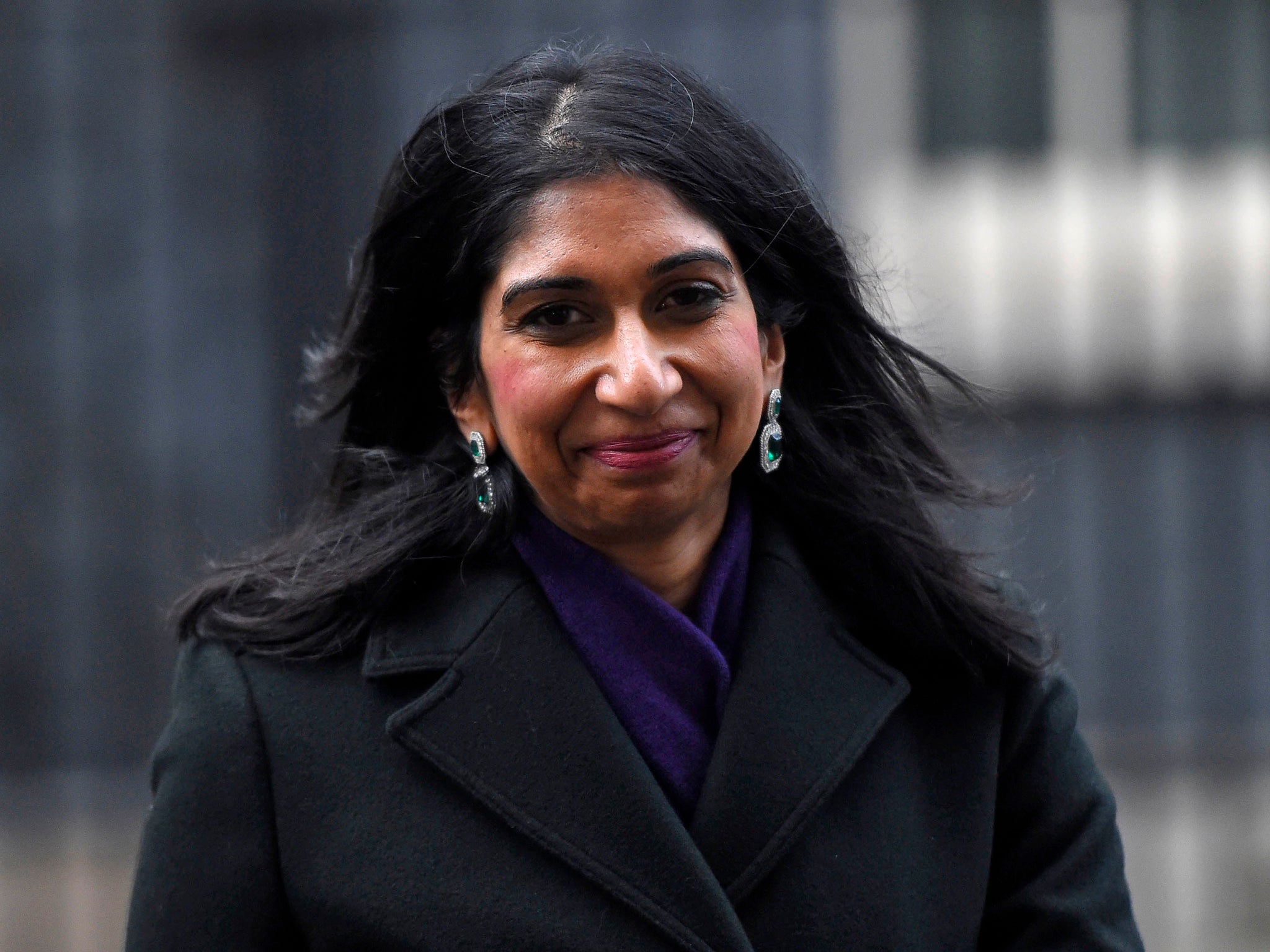Senior female politicians to be able to take maternity leave without having to resign
'Parliament and government still seem to operate on the assumption that women are incidental and that a woman's place ought to be in the home,' says charity director

Senior female politicians in the UK will soon be able to take maternity leave without having to leave their jobs under new measures outlined by the government.
Ministers are due to reform the law so Suella Braverman, the attorney general, is able to take six months maternity leave.
Ms Braverman, the government's chief law officer, would be forced to step down from her role in the cabinet if she needed to take time off work to look after her child after giving birth under current rules.
Joeli Brearley, chief executive and founder of campaign group Pregnant Then Screwed, told The Independent it is “total insanity” it has taken 103 years for the government to acknowledge women who are cabinet members “may have babies and provision needs to be put in place for this eventuality”.
She added: “And although we very much welcome this change, it is disappointing that there is still no maternity or paternity leave policy for MPs. If the government is serious about creating a 50:50 parliament then parental leave policies are critical.”
The Ministerial and other Maternity Allowances Bill will be brought forward by the government on Thursday – with ministers saying they plan to pass all stages of the legislation in the Commons next week.
Felicia Willow, chief executive of gender equality charity Fawcett Society, told The Independent they have been campaigning for many years to boost maternity rights for women as they welcomed the law change.
She added: “No woman should be forced to give up work due to maternity, and we hope that we will also see paid cover for MPs follow suit urgently.
“However, this is far from the reality of most working mothers on low incomes, who are expected to survive on very low statutory maternity pay or maternity allowance, and the payments for which will be deducted for any claims for universal credit. The government must not only support its own but must also help and support all women on maternity leave.”
Ms Braverman, whose baby is due to be born in a few weeks, is able to return to her cabinet position after her maternity leave ends under the new laws.
Dr Wanda Wyporska, executive director of The Equality Trust, said: “It’s shocking that in 2021, the law needs to be changed in order for a woman to go on maternity leave and not have to resign from her job.
“As in so many other ways, parliament and government still seem to operate on the assumption that women are incidental and that a woman’s place ought to be in the home. It’s time that these outdated practices were consigned to the bin of history.”
While Ros Bragg, director of Maternity Action, a leading pregnancy charity, argued maternity leave for cabinet ministers is “long overdue”.
“It is over a hundred years since the first female MP took her seat,” she told The Independent. “It is extraordinary that it has taken over a century for a government to make provision for women in senior roles to take time off to give birth and care for their baby.”
Ms Bragg noted the vast majority of women across the UK only get the statutory minimum maternity leave.
She added: “This is a good opportunity for government to consider raising the very low rates of statutory maternity pay and ending the unfair treatment of maternity allowance in universal credit calculations. UK maternity pay is amongst the lowest in Europe and leaves many new families in serious financial difficulties.”
Ms Bragg said the experience of pregnancy, birth and breastfeeding exerts profound physical demands on women as she emphasised the importance of all working women being able to take time off work to recuperate.
Boris Johnson’s official spokesperson has said current rules are “clearly out-dated and need fixing” – explaining this is why they are introducing the bill.
“At the moment, women are offered the choice between resigning their position or taking time off to recover from childbirth, which is unacceptable in modern times,” he added.
Asked whether all ministers – including a female prime minister – would be able to take advantage of the new rules, the spokesperson said: “It would apply to anybody who holds a government position, whether that is a cabinet minister, a junior minister or anybody who holds a government position.”
Join our commenting forum
Join thought-provoking conversations, follow other Independent readers and see their replies
Comments
Bookmark popover
Removed from bookmarks